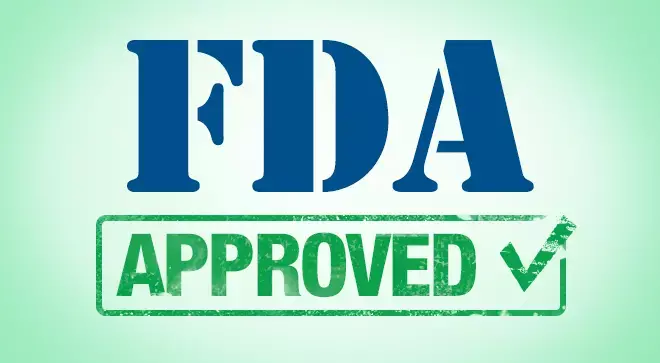- Home
- Medical news & Guidelines
- Anesthesiology
- Cardiology and CTVS
- Critical Care
- Dentistry
- Dermatology
- Diabetes and Endocrinology
- ENT
- Gastroenterology
- Medicine
- Nephrology
- Neurology
- Obstretics-Gynaecology
- Oncology
- Ophthalmology
- Orthopaedics
- Pediatrics-Neonatology
- Psychiatry
- Pulmonology
- Radiology
- Surgery
- Urology
- Laboratory Medicine
- Diet
- Nursing
- Paramedical
- Physiotherapy
- Health news
- Fact Check
- Bone Health Fact Check
- Brain Health Fact Check
- Cancer Related Fact Check
- Child Care Fact Check
- Dental and oral health fact check
- Diabetes and metabolic health fact check
- Diet and Nutrition Fact Check
- Eye and ENT Care Fact Check
- Fitness fact check
- Gut health fact check
- Heart health fact check
- Kidney health fact check
- Medical education fact check
- Men's health fact check
- Respiratory fact check
- Skin and hair care fact check
- Vaccine and Immunization fact check
- Women's health fact check
- AYUSH
- State News
- Andaman and Nicobar Islands
- Andhra Pradesh
- Arunachal Pradesh
- Assam
- Bihar
- Chandigarh
- Chattisgarh
- Dadra and Nagar Haveli
- Daman and Diu
- Delhi
- Goa
- Gujarat
- Haryana
- Himachal Pradesh
- Jammu & Kashmir
- Jharkhand
- Karnataka
- Kerala
- Ladakh
- Lakshadweep
- Madhya Pradesh
- Maharashtra
- Manipur
- Meghalaya
- Mizoram
- Nagaland
- Odisha
- Puducherry
- Punjab
- Rajasthan
- Sikkim
- Tamil Nadu
- Telangana
- Tripura
- Uttar Pradesh
- Uttrakhand
- West Bengal
- Medical Education
- Industry
FDA approves spinal cord stimulation device for patients with painful diabetic neuropathy

USA: The Food and drugs administration has approved first spinal cord stimulation device (HFX) for painful diabetic neuropathy (PDN). The device is the only such treatment approved by the agency for this specific indication and therefore it becomes the only spinal cord stimulation system approved by the FDA with a specific indication for painful diabetic neuropathy.
The device delivers high-frequency stimulation (10 kHz frequency, 30 μs pulse width delivered via bipole, with an amplitude range of 0.5 to 3.5 mA) to the spinal cord. In the procedure, two percutaneous leads are placed epidurally and connected to the pulse generator, and stimulation can be adjusted according to patient feedback.
"This FDA approval marks a capstone achievement that demonstrates the strength of our clinical data and provides a proven, new breakthrough SCS treatment option for PDN patients who are struggling with debilitating pain and who are unable to find relief with currently available pharmacologic options," said D. Keith Grossman, Chairman, Chief Executive Officer and President of Nevro. "We are thrilled that we can now begin commercial launch activities in the U.S. and believe this new indication will be an important driver of the long-term growth of our business for years to come."
Mr. Grossman continued, "We would like to thank lead Principal Investigator Dr. Erika Petersen and the entire team of clinical trial investigators and their patients for their study participation and ongoing partnership, without whom this approval would not have been possible."
Study participants demonstrated significantly improved and sustained outcomes with 10 kHz Spinal Cord Stimulation (SCS), including substantial, sustained pain relief and improved health-related quality of life. The 6-month results for the SENZA-PDN randomized controlled trial (RCT) were previously published in JAMA Neurology2 in April 2021, and the 12-month follow-up results and 6-month crossover patient data were recently presented at the American Diabetes Association 81st Scientific Sessions in June 2021.3 These data will be used to support physician referral decisions as well as market access initiatives to expand payer coverage of this procedure. The company plans to publish these 12-month results, including the 6-month crossover patient data, in a peer-reviewed journal. Study participants will continue to be followed out to 24 months.
"The substantial pain relief and improved quality of life demonstrate that 10 kHz Therapy can safely and effectively treat this patient population," stated Dr. Erika Petersen, Professor of Neurosurgery, Director of Functional and Restorative Neurosurgery at the University of Arkansas for Medical Sciences, and lead investigator of the SENZA-PDN study. "I'm grateful to my co-investigators and the patients who participated in this study, as the results and this approval will have a far-reaching impact on the lives of PDN patients."
"Diabetic neuropathy is one of the most prevalent and debilitating, chronic complications of diabetes, and for years, PDN patients have struggled with a lack of effective treatment options when conventional medications fail or are not tolerated," commented Dr. Frances Broyles, Medical Director of Diabetes/Endocrinology and Nutrition at Swedish Health Services in Seattle, Washington. "The ability to now offer Nevro's proven 10 kHz Therapy, which may enable discontinuation of long-term drug therapy and eliminate unwanted drug side effects, is a welcome addition as a treatment option for my PDN patients dealing with this challenging condition. My personal practice experience with the Nevro 10 kHz Therapy was nothing short of life-changing for the patient."
Dr Kamal Kant Kohli-MBBS, DTCD- a chest specialist with more than 30 years of practice and a flair for writing clinical articles, Dr Kamal Kant Kohli joined Medical Dialogues as a Chief Editor of Medical News. Besides writing articles, as an editor, he proofreads and verifies all the medical content published on Medical Dialogues including those coming from journals, studies,medical conferences,guidelines etc. Email: drkohli@medicaldialogues.in. Contact no. 011-43720751


